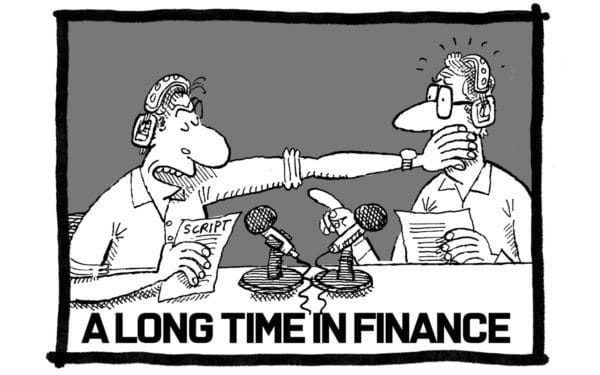The Wall Street Journal broke the news that the US Department of Justice is demanding $14bn from Deutsche Bank to settle the investigation into residential mortgage backed securities (RMBS) sold ahead of the financial crisis.
In essence, the stuff was sold to investors and badged as high quality when it was not. The bank’s share price fell 8% on Friday morning and its management has pushed back, issuing a statement refusing to settle at anything like that price. As of June they had set aside 5.5bn euros for settlements.
Why does this matter as far as the British government and taxpayers are concerned?
The answer is that the next bank in the fine queue in the US is RBS, the state-owned UK bank. As well as facing a tricky court case in London next year against shareholders who claim the bank led by Fred Goodwin misled them about the true position of the bank at the time of the rights issue in 2008, RBS also has two outstanding huge cases due to settle in the US.
There is the Federal Housing Finance Agency settlement pending. And then the Department of Justice RMBS task force settlement.
It is worth noting that according to Bloomberg Intelligence, the total amount of mortgage bonds involved in terms of the Federal Housing Finance Agency case and Deutsche Bank was $14.2bn. In the case of RBS it was more than double that at $32.1bn.
For months I’ve been assured by various people – analysts and bankers – that it will be ok in the end. The DoJ fines in particular when they hit won’t be as large as the worst case scenarios, and a deal will be done. As a taxpayer worried about the possibility of another massive hole being punched in RBS, I do hope they are right.
The danger is if the US authorities see RBS as a pot of free money to be raided. RBS has shrunk a lot and whereas in 2008 in the US it was systematically important (enough to be given help by the US Fed) it is now not. Like all banks it has been forced to rebuild its capital by regulators, creating a buffer. US officials can surely see all that lovely loot.
There is another important implication in the Deutsche Bank case. The talk right now is of the City of London being at risk post-Brexit, because of the idea the financial sector will move. London is Europe and the eurozone’s financial capital, dominating euro-denominated trading.
But would you – if you were the German government, which is the key player – really think now a sensible time to disrupt the European financial system? When Deutsche Bank is wobbling? When the Italian banking system may be about to go bang? Would you really think this is a great moment to fiddle about with how all that debt is issued, traded and swapped, how foreign exchange is handled, and so on, when London is rather good at it? But I’ll write about that another time.




